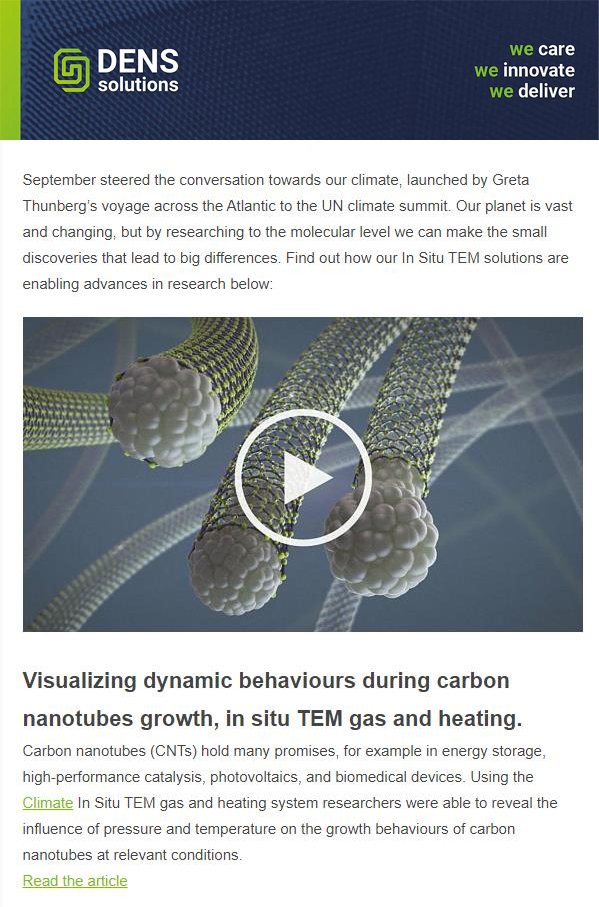
We are proud to announce that DENSsolutions has installed another Climate system in the United States, at Alfred University, which is located in the west of New York State. In this article, we interview Dr. Kun Wang, Assistant Professor at the Inamori School of Engineering in Alfred University, to learn more about their microscopy facility, its research direction, as well as how our Climate system is advancing their research.
Can you tell me more about the microscopy facility at Alfred University?
“Alfred University has numerous research facilities that boast a wide range of high-tech equipment. There are dedicated facilities for materials characterization, mechanical and physical testing, biological evaluation of materials, spectroscopy, materials synthesis and processing as well as imaging and microscopy. The Imaging and Microscopy facility is equipped with a scanning electron microscope, an atomic force microscope and a fluorescent optical microscope, among many other tools. Just last summer, we had our new transmission electron microscope installed, the TFS Talos F200X. This microscope is equipped with a super X-ray detector which enables us to perform high resolution chemical analyses in a highly efficient manner.”
What type of applications are the users at Alfred using the Climate system for?
“Users of the facility are interested in a couple of applications, now enabled via the use of our newly acquired DENSsolutions Climate system. Via Climate, we would like to perform in situ oxidation and reduction experiments on batteries and catalyst materials. Moreover, we are interested in performing in situ high-temperature oxidation experiments for aerospace materials and nuclear matter in order to better understand these materials and their behavior under varying temperature conditions. We are also interested in performing energy-dispersive X-ray spectroscopy (EDX) in those experiments to get a better idea of the elemental composition of a given sample.”
What particular features of the DENSsolutions Climate solution attracted you to the system?
“Aside from the ability of the system to combine gas and heating functions, it was particularly important for me to use an in situ system that could handle high temperatures. Specifically, I was looking for a system that could handle high temperatures while still maintaining the stability of the holder. This is particularly what attracted me most to the Climate system.”
Can you tell me about the grant that was won to acquire the system?
“The grant was actually awarded several years ago, from an institute called the New York State’s Empire State Development, which provides numerous services and resources for education, healthcare, military and other fields.”

Dr. Kun Wang
Assistant Proffessor | Inamori School of Engineering, Alfred University
Dr. Kun Wang received his Ph.D. degree in Materials Science and Engineering from the Swiss Federal Institute of Technology Lausanne (EPFL). He used to work as a Postdoctoral Research Associate at the Nuclear Materials Science and Technology group of the Oak Ridge National Laboratory (ORNL). Currently, he is working as an Assistant Professor at the Inamori School of Engineering, Alfred University. His research focuses on study of structural materials under extreme environmental conditions.
Discover Dr. Kun Wang’s publications:
Learn more about Climate:
Discover publications made possible by Climate:

